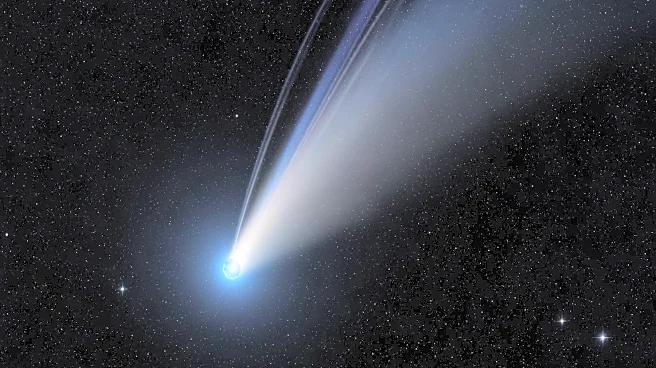What's Happening?
Astronomers have identified a fast-moving asteroid, 2025 SC79, near the Sun, which poses detection challenges due to its position. Observed by Scott Sheppard of Carnegie Science, the asteroid has a rapid
orbit of 128 days and measures approximately 2,300 feet in diameter. Its proximity to the Sun makes it difficult to detect, raising concerns about potential 'planet killer' asteroids that could approach Earth undetected. The discovery underscores the need for improved detection methods for asteroids in twilight zones.
Why It's Important?
The discovery of 2025 SC79 highlights the limitations of current asteroid detection systems, particularly for those near the Sun. These 'twilight' asteroids could pose significant impact hazards if they approach Earth without warning. Understanding their trajectories and characteristics is crucial for planetary defense and mitigating potential threats. The research also contributes to our knowledge of the solar system's history and the movement of celestial bodies.
What's Next?
Further observations and studies of 2025 SC79 are needed to assess its composition and trajectory. Astronomers may develop new techniques to improve detection of similar asteroids, enhancing our ability to predict and respond to potential threats. Collaborative efforts between international space agencies could lead to advancements in asteroid tracking and planetary defense strategies.










